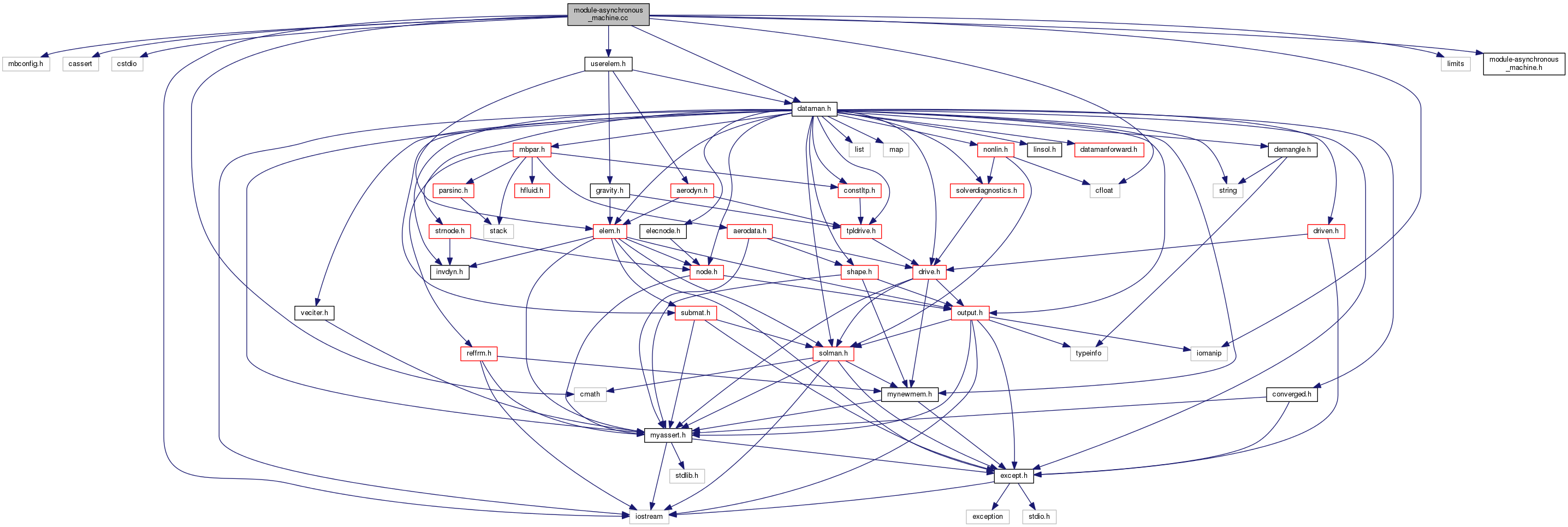|
MBDyn-1.7.3
|
|
MBDyn-1.7.3
|
#include "mbconfig.h"#include <cassert>#include <cstdio>#include <cmath>#include <cfloat>#include <iostream>#include <iomanip>#include <limits>#include "dataman.h"#include "userelem.h"#include "module-asynchronous_machine.h"
Go to the source code of this file.
Classes | |
| class | asynchronous_machine |
Functions | |
| bool | asynchronous_machine_set (void) |
| int | module_init (const char *module_name, void *pdm, void *php) |
| This function registers our user defined element for the math parser. More... | |
| bool asynchronous_machine_set | ( | void | ) |
Definition at line 1090 of file module-asynchronous_machine.cc.
References SetUDE().
Referenced by InitUDE(), and module_init().

| int module_init | ( | const char * | module_name, |
| void * | pdm, | ||
| void * | php | ||
| ) |
This function registers our user defined element for the math parser.
It is called when the "module load" statement appears in the input file.
Definition at line 1117 of file module-asynchronous_machine.cc.
References asynchronous_machine_set().
